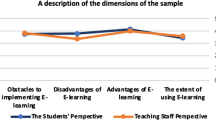Abstract
The modernization of the educational process in the ungraded schools of the Republic of Kazakhstan requires the provision of affordable quality education for students in rural areas on information technology, the creation of e-learning. It was important to consider two points: how does e-learning influence the educational process in ungraded schools, and directly on the quality of teaching, and what results can thus be achieved. The significance of the work is also to explore innovative approaches to e-learning system of ungraded schools. Each student in any country has the constitutional right to a quality education. We asked the question: Are these rights implemented for students of rural areas, whether they get the same amount of knowledge like in innovative schools in the big city, whether there is the same access to advanced information technology in education? Having based on the differences in the level of knowledge, skills and competences in general, we have found that children have different levels of knowledge when they finish the secondary school and unequal starting level for admission to higher education. This led us to the need to develop a set of measures to promote the implementation of quality education for students in ungraded schools of the countryside. In this article, we presented the results of work on the creation of e-learning for ungraded schools of the Republic of Kazakhstan. We have tried to show how information and communication technologies, multimedia educational products (digital resources) influence the quality of education in rural schools, how to improve the quality of teaching in these types of schools.



Similar content being viewed by others
References
Akramova A. (2010) A method of organization of extracurricular work in mathematics in the conditions of ungraded school. Textbook.- Almaty: Kazakh national pedagogical University, vsa.kaznpu.kz/docs/akramova.doc Accessed 5 December 2013.
Işık, C., & Yılmaz, S. (2011). E-learning in life long education: a computational approach to determining listening comprehension ability. Education and Information Technologies, Т. 16(№. 1), С. 71–88.
Keengwe, J., Onchwari, G., Agamba, J. (2013). Promoting effective e-learning practices through the constructivist pedagogy. Education and Information Technologies, С. 1–12.
Kennedy, K., Cavanaugh, C., & Dawson, K. (2013). Preservice teachers’ experience in a virtual school. American Journal of Distance Education, Т. 27(№. 1), С. 56–67.
Kerimbayev, N. N. (2012). Professional use ofinformation communication technology as a component of themethodical system of trainingof future teachers. Siberian Pedagogical Journal, (№5) 65–68.
Kerimbayev, N. (2013). Virtual learning: possibilities and realization. arXiv preprint arXiv:1304.0254.
Levinsen, K. T. (2007). Qualifying online teachers—communicative skills and their impact on e-learning quality. Education and Information Technologies, Т. 12(№. 1), С. 41–51.
Zammit, K. P. (2011). Connecting multiliteracies and engagement of students from low socio-economic backgrounds: using Bernstein’s pedagogic discourse as a bridge. Language and Education, Т. 25(№. 3), С. 203–220.
Author information
Authors and Affiliations
Corresponding author
Rights and permissions
About this article
Cite this article
Kerimbayev, N., Akramova, A. & Suleimenova, J. E-learning for ungraded schools of Kazakhstan: Experience, implementation, and innovation. Educ Inf Technol 21, 443–451 (2016). https://doi.org/10.1007/s10639-014-9331-y
Published:
Issue Date:
DOI: https://doi.org/10.1007/s10639-014-9331-y




